- Learning time
- 120 minutes
- First play time
- 150 minutes
Hitler´s Reich
Designed by: Fred Schachter,Mark McLaughlin
The heart of Hitler’s Reich is simple: players battle for control over Europe, which is broken into regions, and start under majority Nazi control during WWII. Control is decided by players comparing Conflict card strength, and adding dice rolls plus any Event cards they choose to play. Ownership of Event cards is contested in the same way as an area on the map, although on the map having adjacent territories under your control, or reinforcements in place, can push the likelihood of success in your direction…
But around that fast-beating heart is the standard war-game fare of special exceptions and the occasional fiddly rule to remember, such as when hand sizes go up or down (and depleted hand sizes can mean defeat in more ways than one), which areas on the map do what when taken control of, optional rules such as blitzkriegs, big pushes and whatnot. There are also six different victory conditions (different for each side) that relate to hand sizes (if you have a hand size 12 – the maximum – and your opponents three of less) or controlling particular regions on the map: if Berlin falls, the Allies win; if London and Moscow fall, the Axis win; if the Axis lose all their production centres, the Allies win…
The players cards range from the lowly private (strength 2) right up to commander (strength 13) although the value 1 card is a sneaky Saboteur who reduces all opponent’s cards value to 1… Each battle follows a simple course: both sides select a card, reveal it, add three rolled dice to the number and compare totals, with the higher number winning that battle. However, as mentioned above, you can add Event cards into the mix to deleterious effects on your opponent and/or advantages to yourself. So Event cards are extremely helpful, but to get them – you have to fight! And if you lose the fight, your turn is over.
A successful grabbing of an Event card or battle on the board means you get an additional action – either doing the same again or fortifying/reinforcing a region under your control. You can also sacrifice a card (and decrease your hand size) to chuck away 2 or more of your cards and replace them, if you find yourself with a crew of motley privates and corporals.
And so it goes. Unless someone claims an outright win the game goes on for a previously agreed number of years (game years!) until everyone agrees that war is futile.
The guru's verdict
-
Take That!
Take That!
It's war, and nobody is writing poems.
-
Fidget Factor!
Fidget Factor!
High on a first play, dropping considerably. Fast-moving once you know it - if you can get there.
-
Brain Burn!
Brain Burn!
The rules aren't hugely complex. But - in the edition we've played - they're a bit of a mess.
-
Again Again!
Again Again!
If you can navigate your way to familiarity with the game, there is variety to be found here in asymmetric play, the fall of the cards and the chuck of the dice.

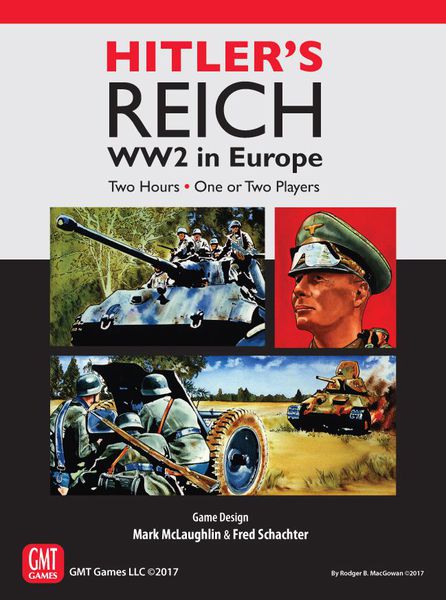

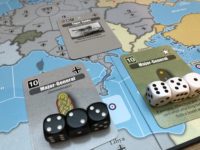
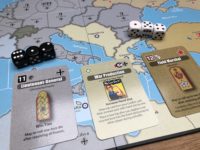
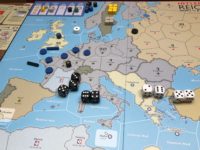


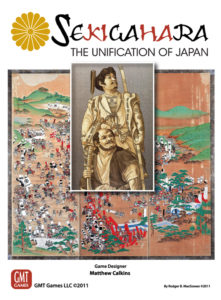
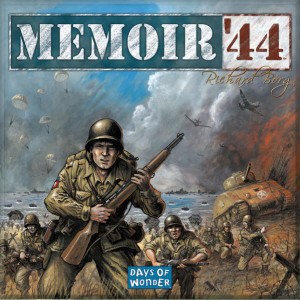
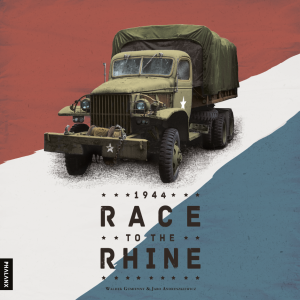
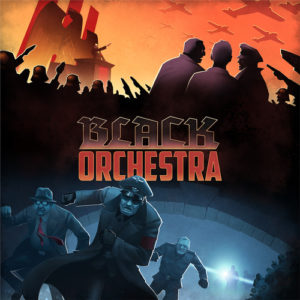
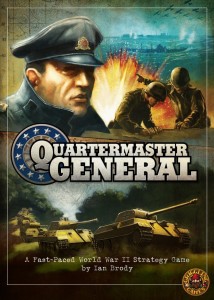
Sam says
A bona fide wargame, inspired by history, based on real events, hoping to provide a gripping and mildly educational experience via the medium of play. It's also from GMT, a publisher I admire for undertaking such themes without seeking to glorify or trivialise. But my word, the rules are a struggle. Compared to the comparatively complex (and conceptually more thoughtful) Pax Pamir, for instance, the basic mechanics should be simple to explain. But they stretch over a 24 page rulebook where the setting up of the game doesn't arrive until page 20, and because of that rulebook it's not one I can recommend, even to nerds like me who enjoy the process of learning a game almost as much as playing it. The fact you need to know what all the available Events are provides an obstacle to play, as unless you know the cards intimately you spend much of your time looking through the cards. Underneath that cloak of static there is a decent design waiting to be discovered: rich in history and and narrative arc. But the other downside of course is that one player needs to be comfortable representing a force financed by (and representing the ideals of) the Nazi party. Is the game historically rich and informative enough for that to feel worthwhile? That's entirely down to the individual. I believe historical games can and should address pretty much any subject, if they do so in a way that doesn't trivialise the setting (see: many colonialist games) and I think Hitler's Reich loosely succeeds on those terms: I learned more about WWII from playing it. But I think it has flaws, and two people need to be relatively dogged to overcome them.